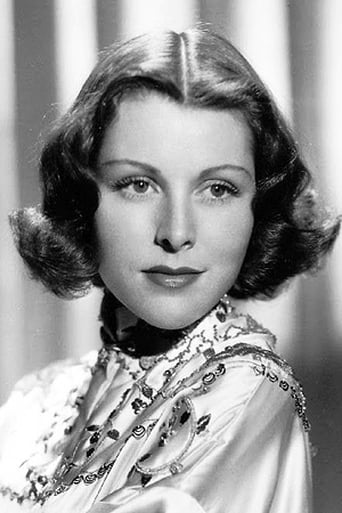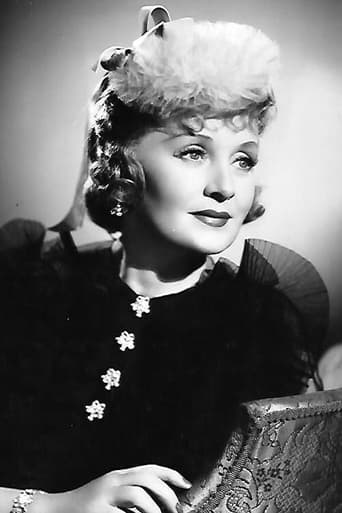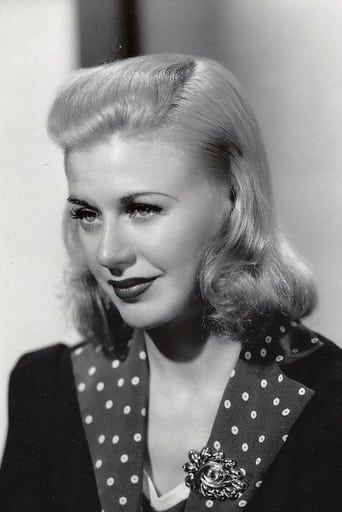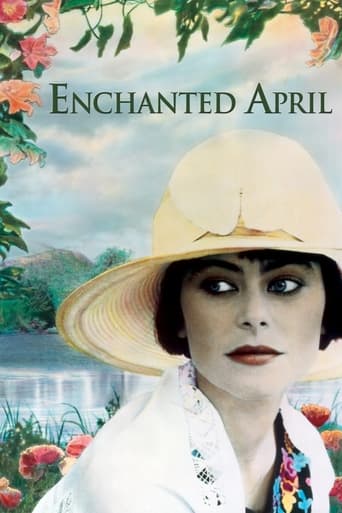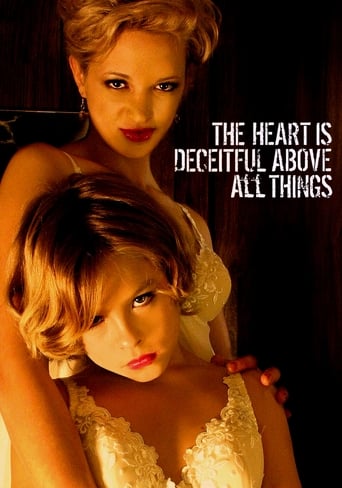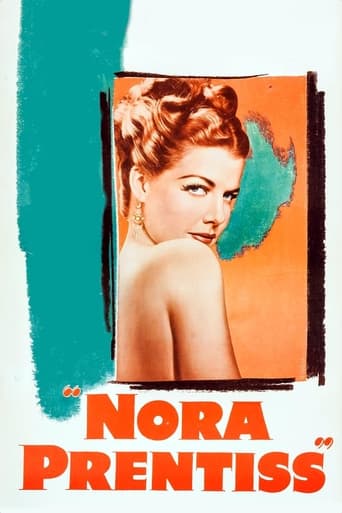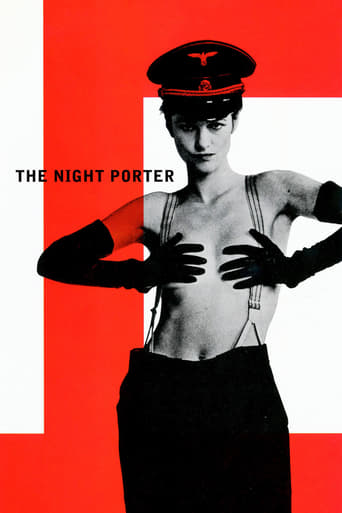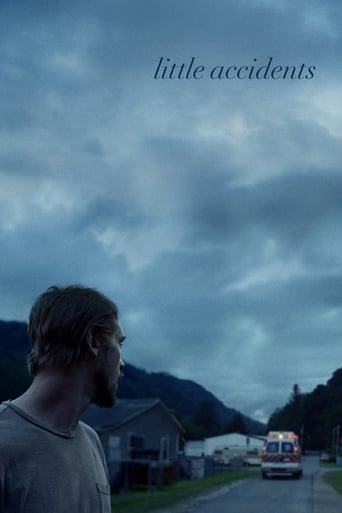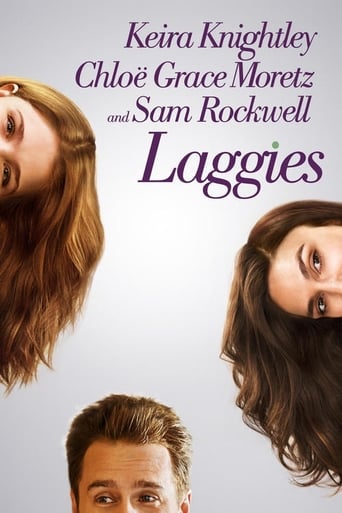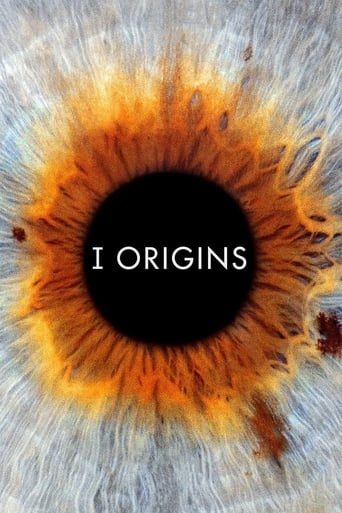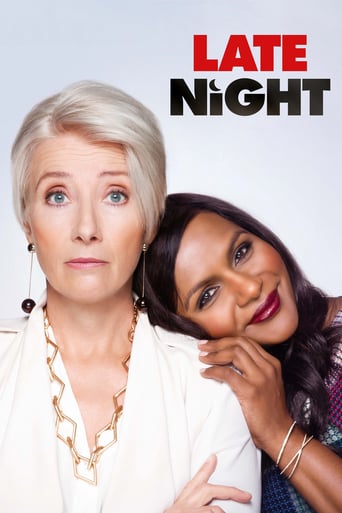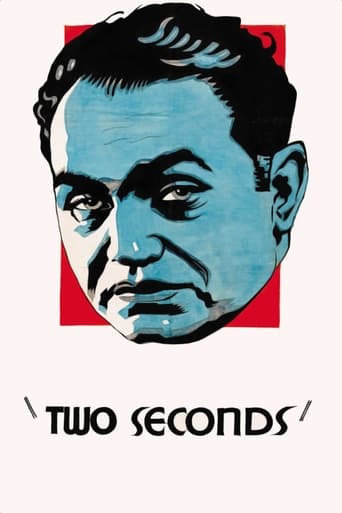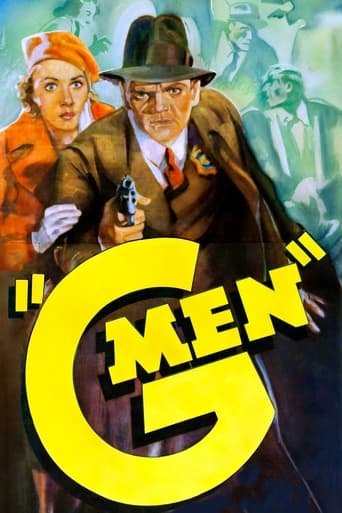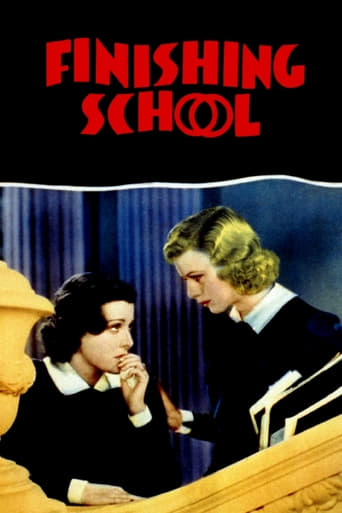
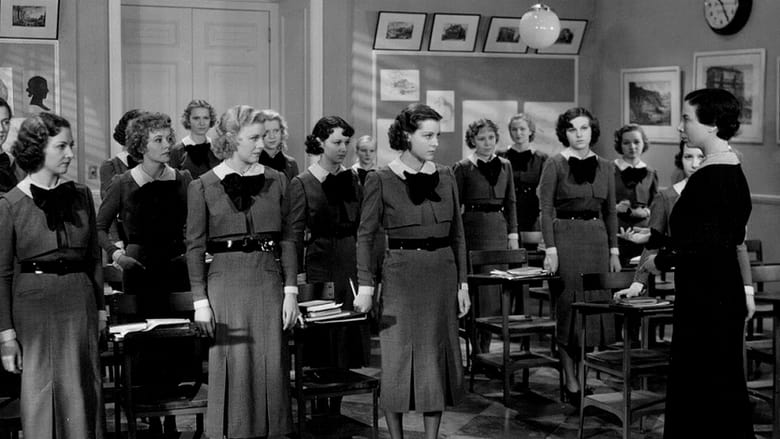
Finishing School (1934)
Virginia, who studies at a boarding school for upper-class girls, falls in love with a medical intern who works as a waiter for a living. Both the director of the school and her mother oppose such a relationship.
Watch Trailer
Cast


Similar titles
Reviews
Truly Dreadful Film
Pretty good movie overall. First half was nothing special but it got better as it went along.
Very good movie overall, highly recommended. Most of the negative reviews don't have any merit and are all pollitically based. Give this movie a chance at least, and it might give you a different perspective.
Blistering performances.
The first indication that "Finishing School" is worth watching is that the Catholic church placed the film on its condemned list for 1934. But it has so much more than that to recommend it.The star of the film is Francis Dee, who plays Virginia Radcliff, the teenage daughter of rich parents who send her off to get educated in the finer aspects of life. The mother--played by Billie Burke--seems to have little use for the daughter and is quite happy to "drop her on the doorstep" and retire to her social agenda. Crockett Hall is an exclusive girls school where exclusivity implies a lack of racial diversity and an emphasis on blueblood backgrounds. At first the school seems like a backdrop for a film comedy about coming of age and the harmless hijinks of young women. But Virginia soon learns that Crockett is little more than a prison where the ridiculous rules of etiquette are but a small part of the personality engineering to which the girls are subjected.Virginia forges quality relationships with a small clique, including "Pony" Ferris, played by Ginger Rogers. Being a fan of Ms. Rogers, I was pleased to find that by this time in her career she is a fully-formed, competent actress. As the harsh headmistress, Miss Van Alstyne (played by Beulah Bondi), cracks down on the indiscretions of Virginia--especially the indiscretion of being "too different"--and we find that this teen comedy has morphed into a significant drama. Francis Dee is more than up to the challenge with her convincing portrayal of a woman who is fighting for her sanity and her life. Indeed, she raises Virginia to the level of heroine."Finishing School" is a stylish film with great acting. It deals with sophisticated issues and gives the viewer an emotional journey.
If Frances Dee hadn't been so beautiful and opted for marriage with Joel McCrea, her talent would have carried her far (in my opinion). At the end of "Finishing School" she has a scene where she is contemplating suicide and it is very reminiscent of her work in "The Silver Cord" (1933). "Finishing School" was just one of several features made around this time, in imitation of the arty German feature "Madchen in Uniform" (1931). Frances plays Virginia Ratcliff, who is enrolled at Crocket Hall, an exclusive finishing school only for girls with families of breeding and inheritance. Of course she finds life at the school a "double standard", as room-mate Pony (Ginger Rogers) gives her the low down - anything goes but "don't get caught". When Virginia is invited by Pony to a "chaperoned" party and finds it anything but, she is rescued from the drunken embraces of a fresh footballer by Mac (Bruce Cabot), a waiter who is working his way through medical school. Frances Dee reminds one that she could have been a very fine actress. She has several dramatic scenes when she finds herself in the "usual" sticky situation. Bruce Cabot is fine as Mac and surprise! surprise! he doesn't play a jerk but a genuine ah shucks!! kind of guy. Beulah Bondi plays the matron in her usual acidic manner. John Halliday had a thankless role as Virginia's exasperated father. Ginger Roger plays peppy Pony but unlike Dawn O'Day (Ann Shirley) who played Billie, both she and Dee were beyond the proper age to be believable as young debs.An interesting story about Anne Shirley. She was just about to get her big break in "Anne of Green Gables" but before that happened she had to put up with the indignity of her part in "Finishing School". Anne had been in films since she was a baby and ten years later had still not received that "special" part that would push her out of the supporting ranks. Her pushy mother was convinced a role in "Finishing School" was the film to do it. She was given the role of Billie but as always seemed to happen to her, RKO changed it's mind and offered the part to Mitzi Green. So, once again, Anne, a ten year film veteran was shunted aside and given an extra's part while a less experienced player was given her role.... ...but a week later Green left the film, her father didn't think the role was big enough for his daughter (and it wasn't that big) and Anne was re-instated. George Nicholls Jnr, was assistant director and the next movie he was assigned was "Anne of Green Gables". He remembered Anne's work on "Finishing School" and was sure she would be perfect for the role of the red haired orphan - and she was.Highly Recommended.
No need to repeat the plot. The year is 1934 and class issues have bubbled to the surface thanks to the Great Depression. The movie itself is not especially riveting, but does provide some interesting insights that I suspect are still relevant. The girls' school amounts to a confining etiquette center where upper-class girls learn the little social markers that will separate them from commoners. In short, the school consolidates ("finishes") the girls' elite status by teaching the rules that define their class and how the girls should behave within them. Above all, one unspoken lesson is that those untutored in the rules, namely common people, now stand as social (economic) inferiors. (Consider how the help is treated.) At the same time, the school presents itself almost like a prison—after all, among these girls, a good reputation upon marriage is crucial, implying among other desirable traits the absence of a rebellious streak.But, of course, as the movie shows, sex is the great equalizer. Animal spirits have a way of breaking down even the most rigid artificial barriers. Pony (Rogers) and her friends typify this biological reality; at the same time, the screenplay comes up with an unexpected twist—at bottom, the school lets the girls get away with these unchaperoned weekends so long as the school's reputation remains unaffected. In short, the school cares more about the business end than it does its stated mission. I suspect this cynical angle comes from a real life experience of one of the writers.In terms of the story, Virginia's (Dee) character is very well conceived. At the movie's outset, a rather uncaring Mom (Burke) abandons Virginia to the school's care. Right away we see that Virginia is a dutiful girl wanting to do the right thing and we're sympathetic. She's ready to obey the received rules, but, more importantly, she also has an instinctual sense of right and wrong as when she defies the rules by tearing up the incriminating note, thereby winning respect from the other girls. It's that depth of character taking shape that forms the movie's core.One key event is being accepted by Pony, which amounts to a liberating experience for Virginia. She can now act out some of her suppressed desires, such as getting "tight". But as the school knows, and Virginia discovers, acting out one suppressed desire can snowball. Thus, it's doubtful she would have made the pivotal decision to accompany her social inferior Ralph (Cabot) without Pony's influence and willingness to act instinctively. But, most importantly is how Virginia actually responds to Ralph. In another key scene, she responds to him as a person instead of as a stereotyped commoner as the school teaches. Thus she overcomes one of the school's central and most far-reaching rules. As her relationship with Ralph deepens, the tension between the rules of her elite class and her instincts becomes greater, until the final break when she leaves the school to marry Ralph. By that act, she finally breaks free of the class rules that would otherwise define her, and at the same time, becomes for the first time, her own person. At bottom, the film is about overcoming artificial barriers to discovering one's own freedom. In this case, Virginia must overcome the constraints of her class-bound background.I expect the movie resonated with audiences then, and still does. One point raised in the subtext is the clash between two foundational principles of American society, namely the occasional clash between capitalism and democracy. Capitalism works to create a class of wealthy asset owners, whose wealth confers privileges not shared by the non-wealthy. That class difference can harden into rivalry when those privileges become discriminatory and are passed onto fresh generations through institutions like finishing schools. If Virginia so chose, she could remain within the confines (rules) of her class and lead a comfortable life. But she doesn't. Instead, she responds to Ralph in democratic fashion, as an equal, along with all that implies. In effect, she thus chooses a democratic ideal over a consequence of capitalism, in a manner I'm sure audiences of the 30's found agreeable, and still do.The movie itself makes two key compromises that soften the implications. First, Ralph is made a doctor and not merely a waiter. Thus, Virginia marries a professional man and not a menial, which makes the union more socially acceptable. At the same time, however, it weakens the democratic challenge. A more challenging screenplay would not, I believe, make that key concession. The second compromise portrays Virginia's father (Halliday) as a somewhat implausible free spirit. Thus, the man representing capitalist privilege is presented as belonging in some fashion to the democratic camp and not to his wife's or Mrs. Alstyne's elitist faction. This concession fuzzes the line between the two conflicting ideals. More importantly for Virginia, it suggests she will not be banished from the family for marrying outside her class. This allows for a more complete happy ending through the possibility of reconciliation down the line. Nonetheless, the school with all its societal implications remains intact.The movie itself is not as interesting as the subtext. Despite good work by the cast principals, the direction remains flat and uninspired—perhaps the result of having two directors instead of one. Plus, the effort at not being explicit about Virginia's pregnancy is awkward, to say the least. Nonetheless, no movie that defies censorship by addressing a common human problem can be without merit. The movie may be obscure, but its themes endure.
A posh school that makes a big show of its moral codes, and party girl students like Ginger Rogers: there's a genre expectation here of a comedy pitting those two elements against each other - plucky students, goody two shoes students, stuffy teachers, cheeky classroom answers, flashlights under blankets, dormitory windows with trellises or trees to facilitate sneaking in/out. This isn't what the film is, although it plays with those expectations.For a start, it turns out that the institution and the party girls get on fine with each other. Rogers' character sees through the institution's preaching as a front for the "genteel racketeering" of extracting exorbitant fees from rich parents, and she understands that the school doesn't care what she does (or what sort of risks she runs) as long as she's sneaky about it and keeps up appearances.This comfortable arrangement is disturbed by Frances Dee, whose moral code the other characters find hard to categorise because it doesn't seem to forbid any particular behaviour or make a big thing about how moral it is - instead it's something along the lines of being true to oneself and living up to one's commitments.Both the institution and the party girls mistake her initially for a goody-two-shoes, so the institution approves and the party girls like Rogers disapprove. As the film develops, Rogers recognises that Dee's moral code is something to be admired and relied on, and Dee breaks the false dichotomy between a party girl and a goody two shoes by being curious, open minded, and willing to try anything once, but defining her own boundaries and being assertive about maintaining them. This independence soon enough confuses and confounds the school authorities, who crack down aggressively and vindictively on her attempts to find her own happiness.The best thing about the film is Frances Dee, who projects a sense of poise, patience, and decorum that's appropriate to the role (then again, some of the impression of poise and patience is probably accounted for by the fact that she's a timeless beauty who one doesn't feel in any hurry to look away from). The earnestness of her character can be tiring to watch - she's a serious, thoughtful young lady who meets a serious, thoughtful young man, and they have a serious, thoughtful relationship. Perhaps more could have been made of Rogers' character for cheekiness and dancing and comic relief, but that may say more about my own expectations for the film. My surprise at the twist the film took can probably also be attributed to my own expectations of the film and the character - thinking about it in retrospect, it's almost true by definition that serious, thoughtful people who follow their own moral codes are likely to do things that defy one's expectations - it's known as freedom.Because everyone is rich, it's harder to symphatise with their troubles (one wonders what Depression audiences made of being expected to feel sorry for the poor lonely girl who gets a $1000 cheque and a $2500 mink coat for Christmas instead of the company of her vacuous parents), and it requires suspension of disbelief not to expect that whatever trouble they get into, they'll be gotten out of it.Some of the commenters mention some ambiguity in the way the film gets a certain subject past the censors, but it's clear that the filmmakers didn't intend any ambiguity and that an adult audience of the time, familiar with the conventions, wouldn't have had any hesitations or doubts in understanding what was going on.It would be over the top to characterise the film as making any grand statements, but its observations about institutional codes and "genteel racketeering" are quite accurate and apply to more than fictional finishing schools - in a scene that hasn't dated at all, Dee's character is brusquely dismissed from a posh soiree for failing to pretend not to notice that the person she is being introduced to is a family member of a white collar criminal.


